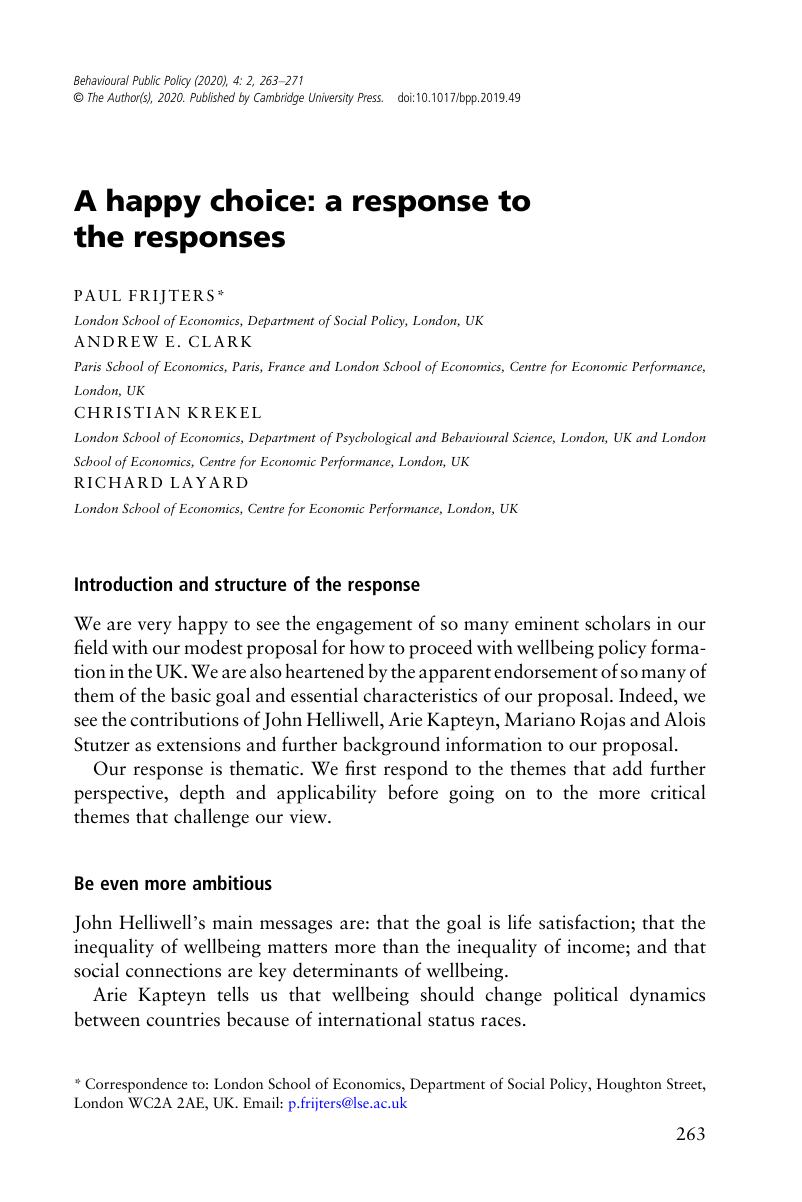No CrossRef data available.
Article contents
A happy choice: a response to the responses
Published online by Cambridge University Press: 16 April 2020
Abstract
An abstract is not available for this content so a preview has been provided. Please use the Get access link above for information on how to access this content.

- Type
- Response
- Information
- Behavioural Public Policy , Volume 4 , Special Issue 2: On Happiness Being the Goal of Government , July 2020 , pp. 263 - 271
- Copyright
- Copyright © The Author(s), 2020. Published by Cambridge University Press.
References
Benjamin, D. J., Heffetz, O., Kimball, M. S. and Szembrot, N. (2014), ‘Beyond Happiness and Satisfaction: Toward Well-Being Indices Based on Stated Preference’, American Economic Review, 104, 2698–2735.10.1257/aer.104.9.2698CrossRefGoogle ScholarPubMed
Frijters, P. and Krekel, C. (forthcoming), A Handbook of UK Wellbeing Policy, prepared for 7 Departments and UK institutions. What Works Centre for Wellbeing (available from the authors).Google Scholar
Frijters, P. and Layard, R. (2018). ‘Direct wellbeing measurement and policy appraisal: a discussion paper’. Centre for Economic Performance, LSE.Google Scholar


